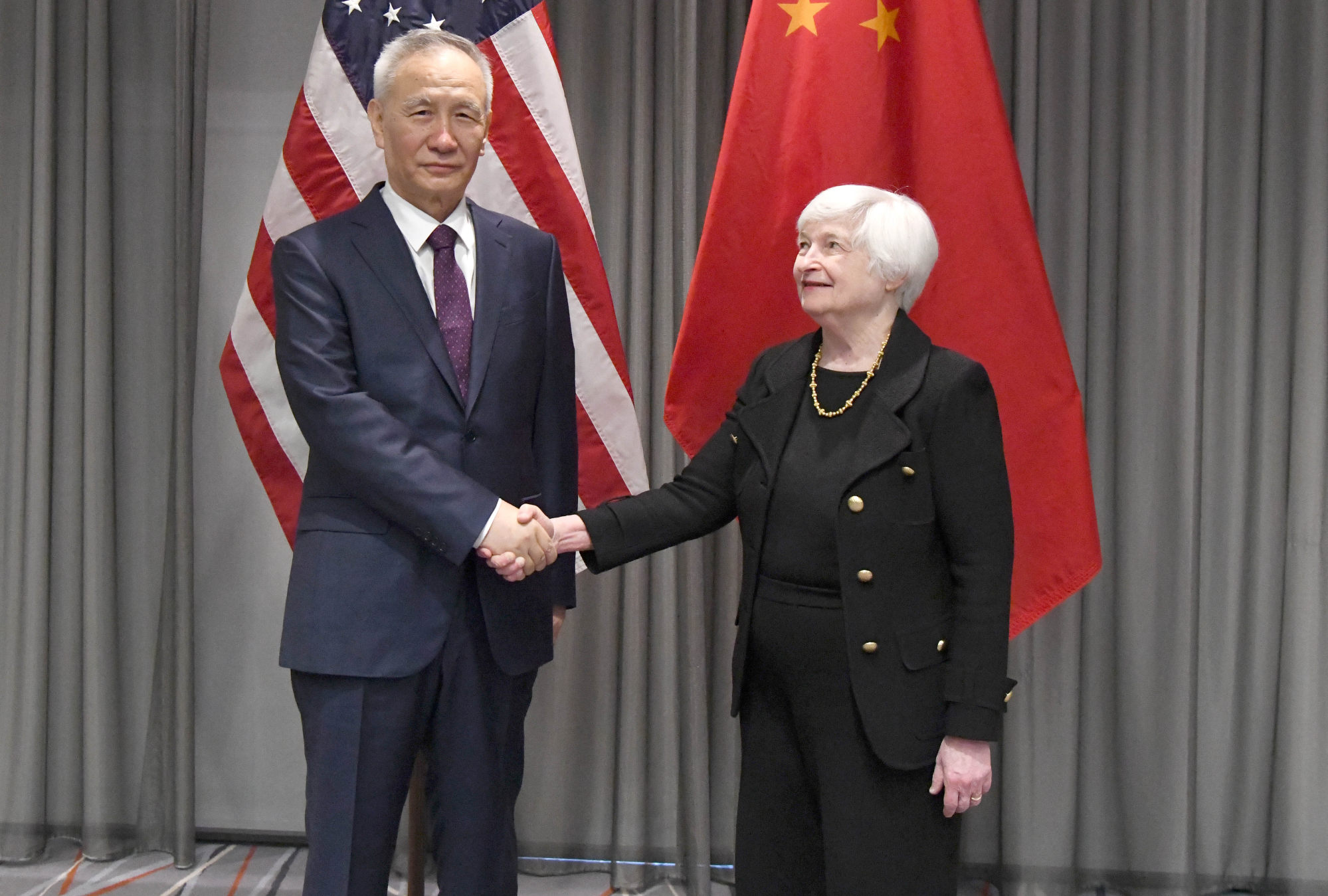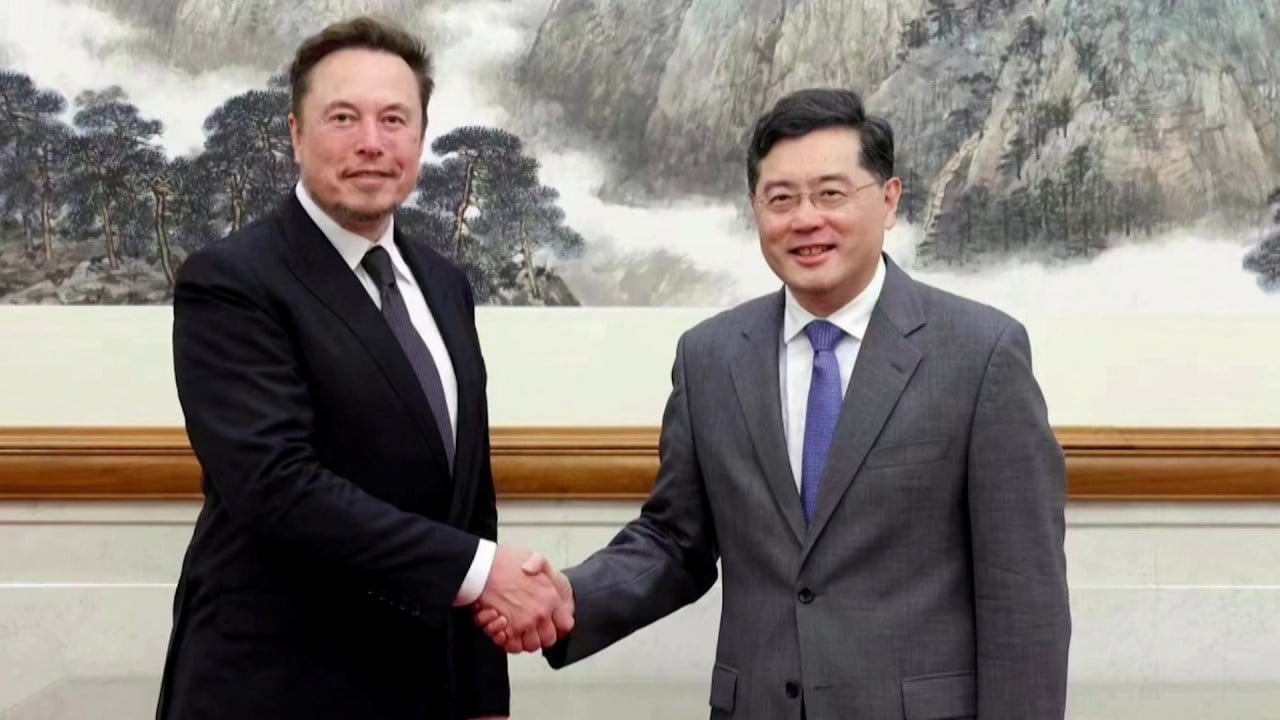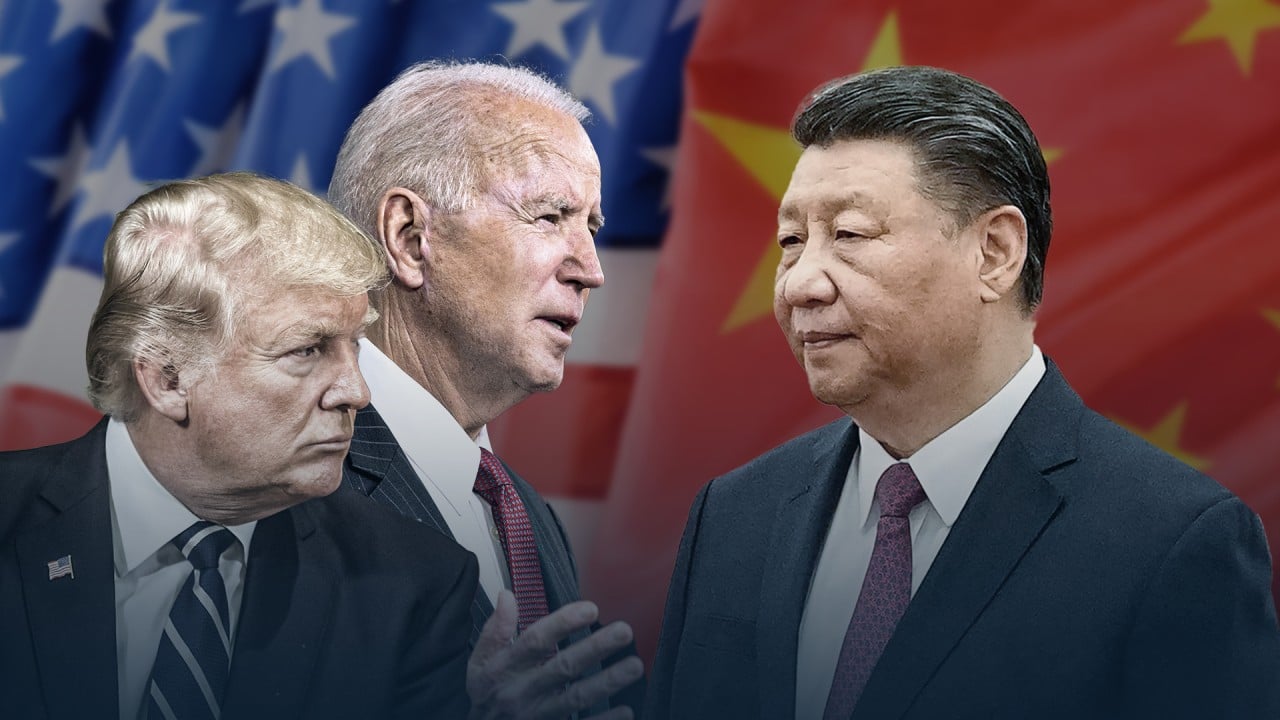
US under pressure from businesses, EU to avoid ‘unnecessary conflict’ with China, but ‘much could still go wrong’
- US Treasury Secretary Janet Yellen is due to travel to Beijing on Thursday for a long-awaited four-day visit to discuss economic and trade issues
- US Secretary of State Antony Blinken also visited China last month, but some American companies have been lobbying Washington to de-escalate tensions
Washington is under pressure from American businesses to adjust its approach to China as the US seeks to resume economic engagement with Beijing, although uncertainties still remain and may even worsen ahead of a possible leaders’ summit later this year, according to sources and analysts.
Engagement on economy and trade used to prevent bilateral relations from derailing, but in recent years, a technology rivalry has intensified, and Beijing has also spearheaded indigenous innovation to break US-led containment efforts, which it views as an existential crisis for China’s economic growth.
Some US companies, though, have been lobbying Washington to de-escalate tensions, according to sources who refused to be identified due to the sensitive nature of the issue.
“European companies are doing the same with their respective governments,” said one of the sources.
We hear that one of the main reasons the US is now trying to narrow down its approach is because of the EU pressure
Another source said some European executives have expressed their discontent with what the US is doing as it appears that it is dragging their countries and companies into an “unnecessary conflict”.
“And I guess this is the same feeling of some EU governments, as we hear that one of the main reasons the US is now trying to narrow down its approach is because of the EU pressure,” the source added.
US business communities are divided over whether Washington should soften its approach or become more hawkish with China, but analysts said keeping lines of communication open is key to de-escalating overall tensions.
There are, though, still uncertainties, and “much could go wrong” before a possible visit by Xi to the US in November.
Han Lin, China country head at consulting firm The Asia Group, said US businesses could “find comfort” that US and China leaders are seeking ways to de-escalate tensions, and mitigate the contractionary and inflationary ramifications of decoupling.
“This gives businesses a breathing space to focus on China’s economic fundamentals as they plan their 2024 budget,” he added.
Chinese officials have also pinned their hopes on US business actively playing a role to mediate and bridge the gap, and they have taken chances to send strong signals against decoupling.
Fang Xinghai, vice-chairman of China’s securities regulator, said at a financial forum in early June that China will never seek decoupling with the outside world but proactively connect with others.
The offices of US research firm Capvision were raided by Chinese authorities at the start of May, with staff questioned by national security and market regulation authorities, who were reported to have inspected items found at offices in Shanghai, Beijing, Suzhou and Shenzhen.
What may be a temporary lull in US-China tensions could get noisy in Washington going into next year’s election season
“While Musk and Gates came to China for different reasons, they and other visiting CEOs, underscore how important people-to-people exchange – a modest but important outcome of the Blinken visit – can be in tempering US-China misunderstandings,” added Lin at The Asia Group.
“Nonetheless, what may be a temporary lull in US-China tensions could get noisy in Washington going into next year’s election season.”
Doug Barry, a former official at the United States Commercial Service, said despite low expectations for a substantial improvement in overall relations, “there may yet be a path forward through additional high-level dialogue culminating in President Xi’s probable visit to the US in November”.
“But there is much that could go wrong between now and then,” he added.

A business insider said, while they still see potential in the Chinese market, US companies are hesitant in making moves due to concerns over possible sanctions from both sides.
“A white list on what companies can invest may be helpful for bilateral collaboration,” said the insider, who was reluctant to be identified due to the sensitive nature of the issue.
“We have heard that the Biden administration is looking to take a more measured and selective approach to the restrictions it is imposing on China,” he added.
“So, they are no longer talking about more commercial technologies, such as biotech and clean tech, and I think this is in line with Secretary Yellen’s speech in April at Johns Hopkins School of Advanced International Studies.”
By getting relations on firmer ground, the hope is any deterioration will not be lower than in the spring of 2023
Cameron Johnson, a partner at consulting firm Tidal Wave Solution based in Shanghai, said that the goal of the Biden administration is to get US-China relations stabilised and “to a higher point” before Christmas.
“With the election season in 2024, the chance of relations deteriorating is high, especially with US presidential election candidates attacking the Biden administration,” he explained.
“By getting relations on firmer ground, the hope is any deterioration will not be lower than in the spring of 2023.”
Being cautiously optimistic, Marro explained that US companies should expect pressure stemming from policies, like export controls, sanctions, investment restrictions and other trade restrictive measures to persist – and intensify – over the foreseeable future.
“These measures are tied to the overall diplomatic and geopolitical outlook for US-China ties which, despite Blinken’s visit, remains pretty dim,” he added.
Lu Xiang, a US-China relations expert at the Chinese Academy of Social Sciences, said that practical issues like trade are still an area where both countries can find the middle ground and common interest.
“The conflict between the US and China is structural in nature, whereas trade might help bring a rebound of the bilateral relationship from the bottom,” he said.
“But it might not be a big breakthrough and we also don’t know to what extent trade can help reset the relationship, given the US is not very transparent on managing the [import] tariff list.”
It is widely expected that the Biden administration will keep US$300 billion of Trump-era tariffs on Chinese goods and tech containment on its China playbook.
The Economist Intelligence Unit’s Marro said there will be an “indefinite maintenance of those US tariffs on China”.
“There isn’t enough political space, domestically, for the Biden administration to consider removing these tariffs, making their elimination an unlikely outcome,” he added.
The US recognises that it can’t push for a full economic ‘decoupling’ with China, even if, to an extent, this has already happened
But Marro said there are “simply too many linkages” between the world’s two largest economies.
“The US recognises that it can’t push for a full economic ‘decoupling’ with China, even if, to an extent, this has already happened in parts of the global technology and digital ecosystem,” he added.
He Weiwen, a senior fellow with the Beijing-based think tank Centre for China and Globalisation, said that “it is necessary” for the US to relax its tech containment against China because advancement in modern technology needs the support of the world’s market.



